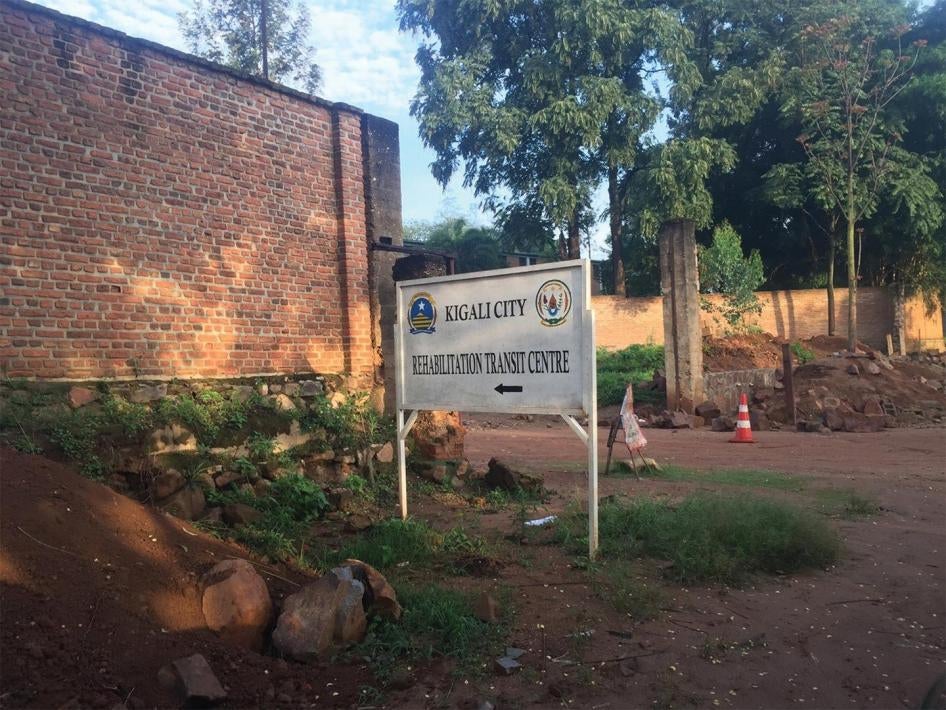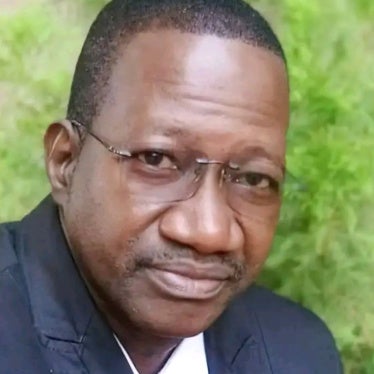On October 3, “Rwanda Day” will be celebrated in Amsterdam. It is an annual opportunity for Rwandans, particularly those in the diaspora, and friends of Rwanda to gather and discuss Rwanda’s history and future. Rwanda has much to celebrate just 21 years after genocide devastated the country. Indicators on poverty, health and the economy continue to move in the right direction.
But while the country has advanced significantly in some areas, it has come up short in others. There are severe restrictions on core political rights such as freedom of expression, and dissent is not tolerated. In this restrictive environment, the authorities arbitrarily arrest people and unlawfully detain them.
One of the most notorious illegal detention centers in the capital, Kigali, is the Gikondo Transit Center. The police round up the city’s poor on the streets – street vendors, homeless people, beggars, sex workers – and hold them in Gikondo for weeks or months with no legal basis. They tell them they are dirty and are ruining Kigali’s reputation as a clean city.
Conditions at Gikondo are deplorable. Detainees are held in cramped spaces without adequate food and water. Visits by family and friends are not allowed. Detainees are frequently beaten by the police or by other detainees delegated by the police to maintain order. Women have been beaten in front of their children, when the children defecated on the floor – they are allowed to use the toilets only twice a day.
The Rwandan government claims that Gikondo is a rehabilitation center, but the detainees Human Rights Watch spoke to had not benefited from any form of rehabilitation, training or other activities. Many were released -- often after bribing the police -- in much worse condition than when they went in. Many, especially sex workers, have passed through Gikondo several times.
The detentions in Gikondo and the abuses there violate Rwandan law. In a letter to Human Rights Watch in November 2014, the Rwandan justice minister acknowledged that there was no legal framework for the administration of the center.
The celebration of Rwanda Day in the Netherlands is an indication of the strong relationship between the two countries. The Dutch minister for trade and development cooperation visited Rwanda in late 2014. The Rwandan justice minister visited The Netherlands in June 2015. The Netherlands is an important donor to Rwanda, supporting food security, water management and the rule of law. Budgets of €30.3, €122.9 and €35 million have been earmarked for these themes for 2014-2017.
Under the rule of law program, Dutch money provides vital funding to the Rwandan Justice Ministry. The Dutch government is therefore in a key position to speak out when the rule of law is not observed.
Human Rights Watch issued a report last week describing unlawful detention and ill-treatment in Gikondo – its second on the center in nine years. The Rwandan government, through the Justice Ministry and the mayor of Kigali, has gone from saying the information in the report is false – governments all over the world use this refrain when hard truths are told – to saying that the people held at Gikondo are mostly drug abusers in need of support.
But Human Rights Watch found a different picture. Most of the 57 former detainees at Gikondo we interviewed were simply poor women and men who struggle on the margins in Kigali, who barely manage to earn a living. Their lives are tough, and made much worse by the existence of this unlawful place. The Rwandan government should shut down this center, and the police should stop targeting people who are only trying to survive. If the Rwandan government’s policy is really to provide rehabilitation, training and education for vulnerable groups, that is a worthwhile aim. But that is not happening in Gikondo.
During Rwanda Day celebrations, Dutch decision makers will rightly celebrate some of Rwanda’s remarkable gains. But they should also look behind the façade, and remember the people held in Gikondo, suffering serious abuses simply because they are poor. Dutch officials should ask hard questions of Rwandan officials about Gikondo and tell their partners in the Rwandan Justice Ministry that this blatant disregard for the law and fundamental human rights is unacceptable.
..
Anna Timmerman is Senior Director of The Netherlands office at Human Rights Watch.








